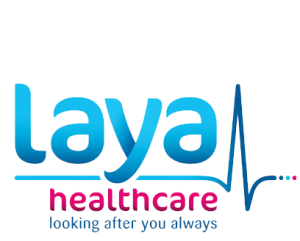 Download this information as a PDF
Download this information as a PDF
Does the pill work and how?
If the pill is taken according to instructions it is over 99% effective. It works by:
• stopping the ovaries from releasing an egg each month (ovulation)
• thickening the muccous in your cervix. This makes it difficult for sperm to move through it
• making the lining of your womb thinner, so it is less likely to accept a fertilised egg
How do I start taking the Pill?
If you start the pill on the first day of your period, you will be protected from pregnancy immediately.
If you start the pill at any other time in your cycle, you will need to use another contraceptive method, such as condoms, for the first seven days of pill taking.
How do I take the pill?
Most pill packets contain 21 pills - Take the first pill from the bubble marked with the correct day of the week. Try to take it at the same time each day and take a pill every day until the pack is finished (21 days). You then stop taking the pills for seven days. During this week you get a withdrawal bleed (period). Start your next pack on the eighth day (the same day of the week as you took your first pill). Do this whether or not you are still bleeding.
Am I protected from pregnancy during the seven-day break?
Yes, you are protected if;
• you have taken all the pill correctly and
• you start the next packet on time and
• nothing else has happened that might make your pill less effective
THE PILL RULES / 7 DAY RULE
Missing pills or starting the packet late may make your pill less effective. The chance of getting pregnant after missing pills depends on when and how many pills are missed.
In general, if you are...
• 12 hours or less late, take the pill and carry on the rest of the packet as usual. You do not need extra precautions
• If you are between 12 and 24 hours late, take that pill and carry on the rest of the packet, however you may have lost protection and should take extra precautions (see below) for 7 days.
• If you are 24hrs or longer late, leave that pill in the packet and carry on taking the rest of the packet but you must use extra precautions for 7days.
• If you have had unprotected sex in the day or so before missing the pill or within 7 days after, you may need emergency contraception and should seek medical advise immediately
• If less than 7 pills are left in packet after the missed pill, finish the packet and begin a new one the next day i.e. do not take the 7 day break.
What are extra precautions?
Extra precautions mean abstaining from intercourse or using a barrier method such as condoms for the 7 days.
What should I do if I am sick or have diarrhoea?
If you vomit within 2 hours of taking the pill, it will not have been absorbed by your body. Take another pill as soon as you feel well enough. As long as you are not sick again, your contraception will not have been effected. Take your next pill at the normal time. If you continue to be sick, seek advise.
If you have severe diarrhoea, this may make your pill less effective. Keep taking you pill as normal, but treat each day that you have severe diarrhoea as if you had forgotten to take the pill and follow the rules above.
If you are put on medication of any kind, always ask if it affects your pill.
If you think something has happened to make your pill less effective and are unsure what to do, please contact a nurse or doctor at the clinic and we will give you advise.
WARNING! Not everyone can safely use the pill. You must let us know if any of the following apply to you. Alternative methods of contraception may be safer (this applies to the contraceptive patches and rings also):
• you think you might be already pregnant
• you smoke and are 35 or older
• you are 35 or over and stopped smoking less than one year ago
• you smoke >15 cigarettes a day at any age
• you are very overweight
• you take certain medications
• you have been injured or are due to have surgery
• you or a family member have had a thrombosis (blood clot)
• you have a heart abnormality or circulatory disease
• you have raised blood pressure (hypertension) including during a previous pregnancy
• you have migraines especially with aura
• you have breast cancer
• you have liver or gallstone problems
• you have diabetes
Copyright © Dr. David Buckley






